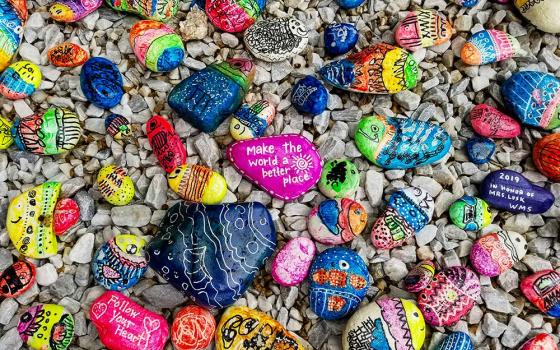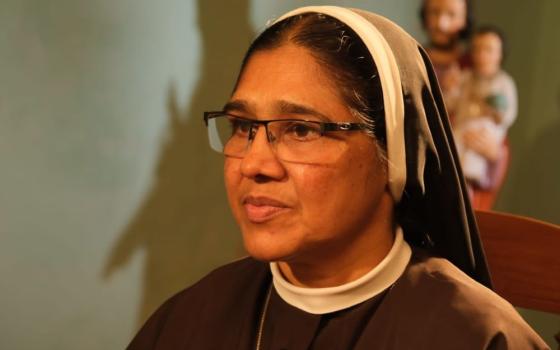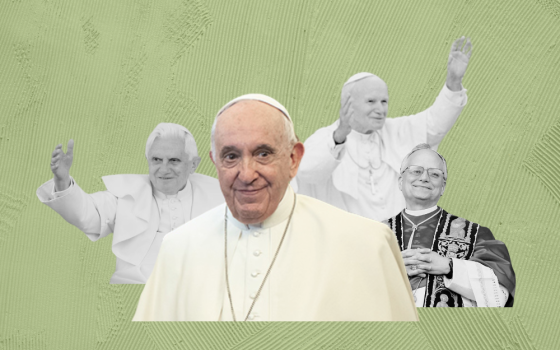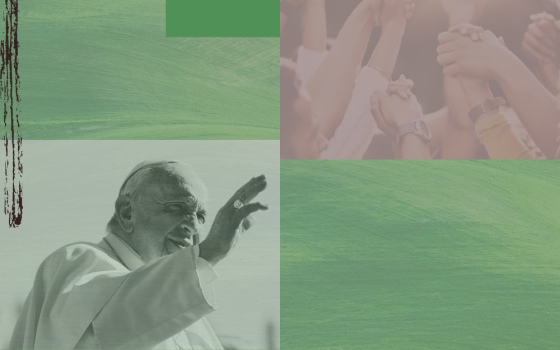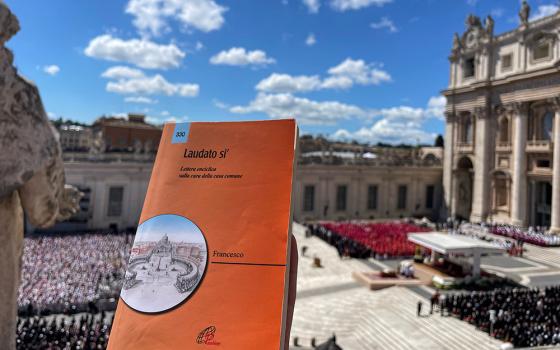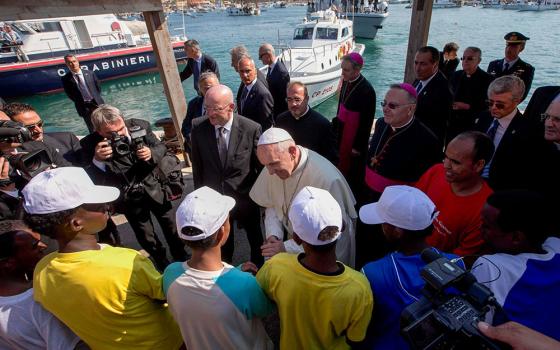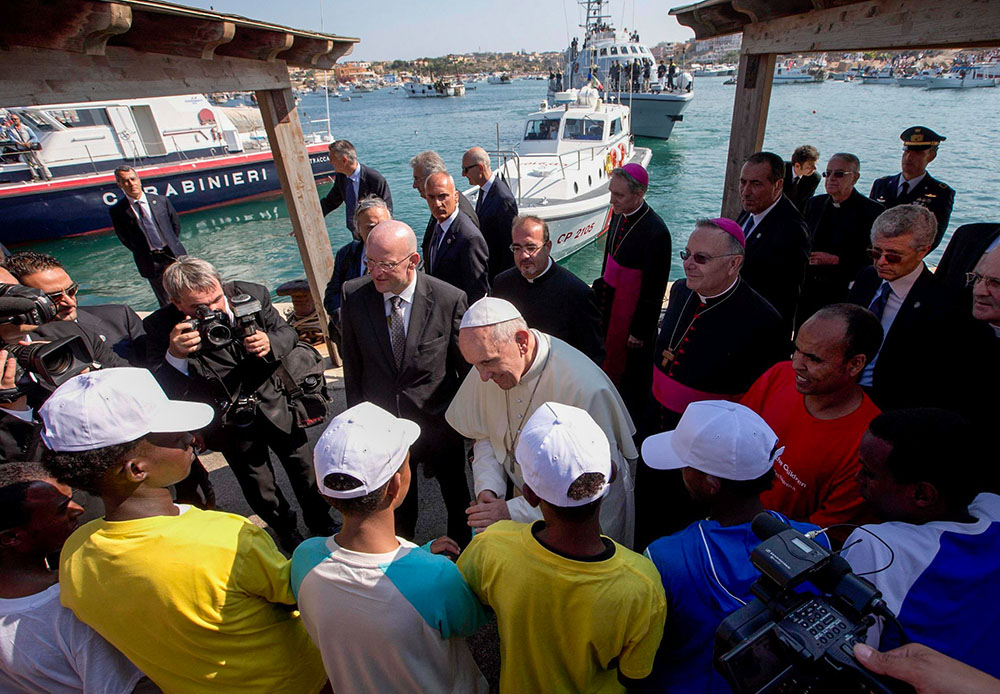
Pope Francis talks with migrants at the port in Lampedusa, Italy, July 8, 2013. (CNS/Pool via Reuters)
Catholic sisters who work with immigrants and refugees are not only grateful for the late Pope Francis' legacy on the issue, but are also committed to continuing that legacy through their own efforts, they say. They are also hopeful Pope Leo XIV will pick up the mantle.
But regardless of the priorities of the new pontificate, sisters say it is everyone's responsibility to care for those forced to leave their homes.
"It's up to us," said Sr. Norma Pimentel, executive director of Catholic Charities of the Rio Grande Valley in the Diocese of Brownsville, Texas. "The torch is passed on to us — we can't say we didn't know. We have to live out his legacy by how we care for others."
Pimentel, a member of the Missionaries of Jesus, is well-known for her work at the Humanitarian Respite Center in McAllen, Texas, which has helped tens of thousands of immigrants and asylum seekers. But she toiled largely in obscurity until Francis singled her out to thank her for her work caring for the most vulnerable.
In August 2015, a whirlwind of attention had already begun: Pimentel had been invited to the pope's Mass during his September visit to the United States, to the White House for the pope's meeting with President Barack Obama, and to join a tour the pope would be taking in New York City.
Then, on Aug. 31, ahead of the papal visit, in front of 400 people in McAllen and hundreds more in two other cities connected by satellite feed, Francis asked Pimentel to stand up and come forward. He said, "I love you," and praised her efforts.
Suddenly, she had international recognition, and she has used it ever since to encourage people to care for migrants and refugees. Pimentel says she simply used her new platform to repeat what Francis was already saying.
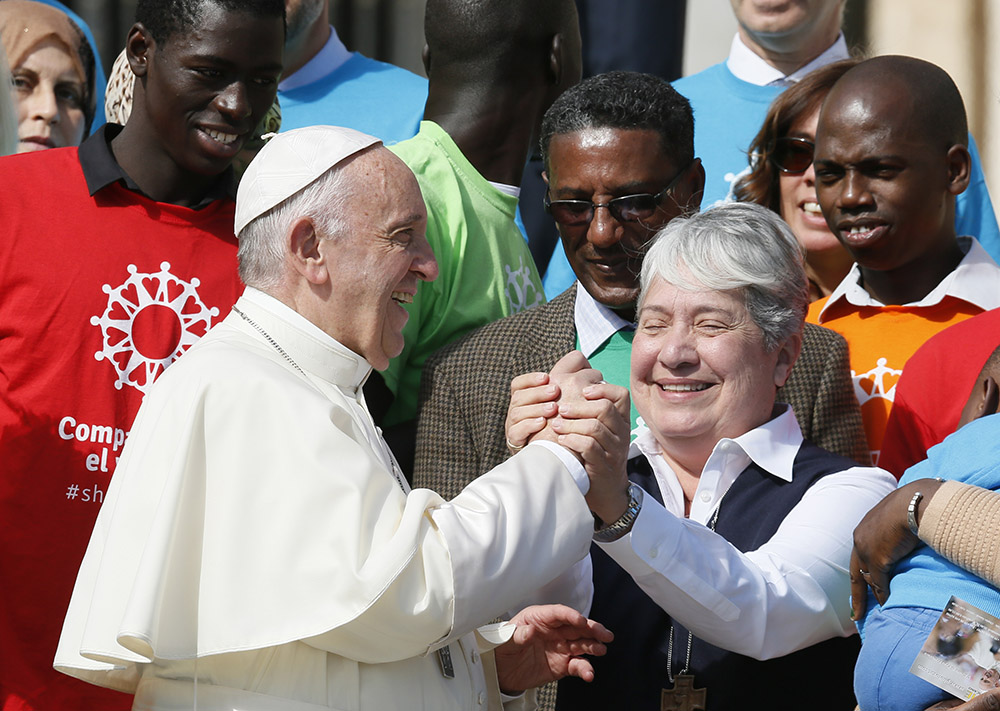
Pope Francis greets Missionaries of Jesus Sr. Norma Pimentel, executive director of Catholic Charities of the Rio Grande Valley in Texas, as he meets immigrants and representatives of Caritas Internationalis during his general audience in St. Peter's Square at the Vatican Sept. 27, 2017. (CNS/Paul Haring)
"The fact that he singled me out, elevated me for everyone to see — because he did that, people listened to me," she said. "I just gave the same message he did."
While the recognition opened doors, there is still much to be done.
"President Trump says [migrants are] the poison that is contaminating the United States," Pimentel said. "That means we have work to do."
Sr. Bridget Bearss, a Religious of the Sacred Heart and the associate director for transformative justice at the Leadership Conference of Women Religious, said Francis' legacy on migration is more than just how he made it a priority of his pontificate. The encyclicals he wrote show how everything is connected, that migration is intertwined with climate change and economic and racial justice, which are all intertwined with how we treat each other, she said.
"The combination of the encyclicals Laudato Si' and Fratelli Tutti is a framework he gave us for living," Bearss said. "It's about transformation, it's about the dream of the Gospel."
She said congregations of women religious continue to participate in the Laudato Si' Action Platform, working to live out the goals of climate justice.
"It was deeply inspiring to see the work that is being done by individuals and congregations on behalf of the inspiration we received from his teaching," Bearss said. Francis' encyclicals "take us right to the root cause."
She said the pope — any pope — who makes these issues a priority has a huge impact because of his moral authority in the world.
Advertisement
"It makes a huge difference, there's no question," Bearss said. "It gives articulation, a naming, to this work to which we are called. ... I believe he gave us a pathway — he made it our collective work, not the work of an individual congregation or women or men religious or clergy, but to say we are all responsible. I'm not sure you can measure what the impact is because it has been profound."
Now, hopefully with Leo leading the way, the work must continue.
"The challenge these days is not to see this as an invitation we received during a particular papacy, but the depth of an inner call. Not to see it as temporal, but as universal," Bearss said. "Now we have to make it real."
Mercy Sr. JoAnn Persch, who, along with Mercy Sr. Pat Murphy, has been helping migrants and refugees since the 1980s, said the pope's support also has practical, quantifiable effects: Wallets and checkbooks begin to open, and other organizations and agencies are more willing to help.
In 2022, Persch and Murphy were on a committee of the Chicago Archdiocese, trying to get parishes to sponsor immigrant families. Because Francis had made migration a priority, Cardinal Blase Cupich wrote a letter that went to every parish, Persch said.
"People gave a lot of money, and parishes could apply for that money and take in a family," she said. "The ones who did that, I know heard Pope Francis' message."
Years before, Persch and Murphy were having trouble getting zoning approval for a shelter for immigrants who had been detained and released but had nowhere to go. Persch sent to the board members a copy of Francis' statement that buildings are for the body of Christ.
"We got the building and I owe it to Pope Francis," she said.
As for Pope Leo, no one knows exactly what his priorities will be.
"We are sure praying that we have someone who is like-minded and -hearted," Persch said.


